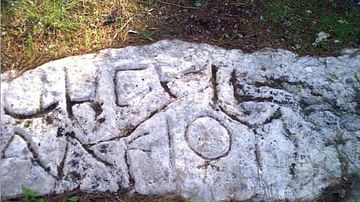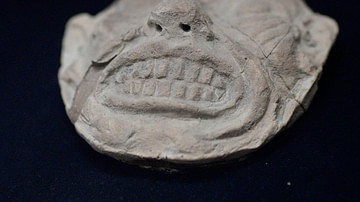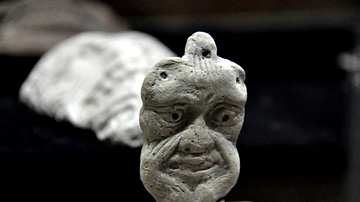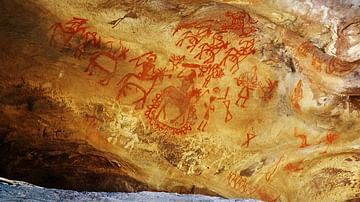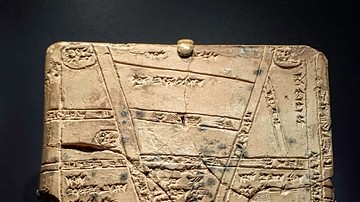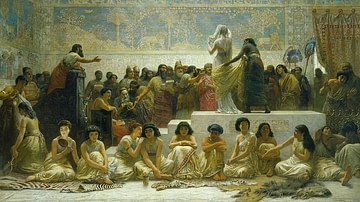Illustration
This boundary stone, or kudurru, records a gift of land made by Eanna-shum-iddina, governor of the Sea-Land in Southern Babylonia. The receiver's name is Gula-Eresh. The text ends with a series of curses on anyone questioning the gift or damaging the stone. The stone does not refer to any Babylonian king by name. The symbols above the cuneiform writings represent Mesopotamian deities. Middle Babylonian Period, 1125-1100 BCE. From Mesopotamia, modern-day Iraq. (The British Museum, London)
Cite This Work
APA Style
Amin, O. S. M. (2017, August 23). Boundary Stone from Mesopotamia. World History Encyclopedia. Retrieved from https://www.worldhistory.org/image/6975/boundary-stone-from-mesopotamia/
Chicago Style
Amin, Osama Shukir Muhammed. "Boundary Stone from Mesopotamia." World History Encyclopedia. Last modified August 23, 2017. https://www.worldhistory.org/image/6975/boundary-stone-from-mesopotamia/.
MLA Style
Amin, Osama Shukir Muhammed. "Boundary Stone from Mesopotamia." World History Encyclopedia. World History Encyclopedia, 23 Aug 2017. Web. 15 Apr 2024.


